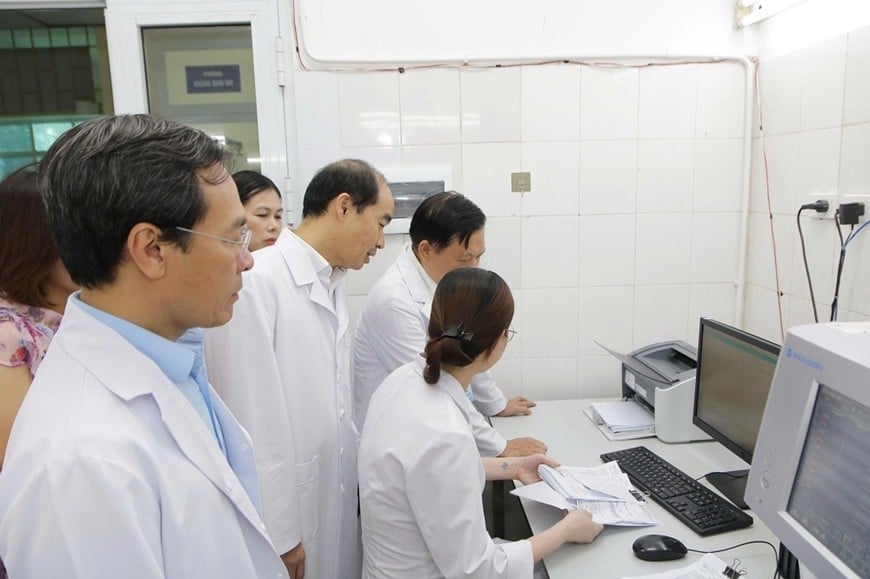On October 1, the Hanoi Department of Health informed that the Hanoi Health sector has officially completed an important milestone in the digital transformation journey, 42/42 (100%) public hospitals under the Hanoi Department of Health have successfully deployed electronic medical records to serve medical examination and treatment according to the Government's roadmap.
This is not only a technical step forward, but also a comprehensive transformation in the management and provision of medical services, bringing practical benefits to both patients and medical staff.
Hospitals have proactively allocated resources, invested in hardware and software infrastructure, and synchronized information technology systems to ensure effective implementation of electronic medical records. This is a clear demonstration of the spirit of innovation and determination to complete the goals of the Capital Health Sector in applying information technology. digital transformation of professional activities.
Electronic medical records replace traditional paper medical records, helping to manage medical data in a more scientific , accurate and comprehensive way. This system not only stores medical records of each patient but also connects and shares data between medical facilities, forming a modern medical information network.

For the medical team, Electronic medical records help reduce administrative procedures, save time recording, searching and storing records. Instead of processing documents manually, doctors can quickly access the patient's entire medical history with just a few operations on the system. Thanks to that, diagnosis and treatment are more accurate, continuous and effective.
Electronic medical records provide centralized, unified data, helping the Department of Health and relevant agencies grasp the situation of medical examination and treatment, epidemiology, infectious diseases or public health issues quickly and promptly. This is an important basis for policy planning, strategy adjustment and appropriate resource allocation.
In addition, the implementation of electronic medical records also contributes significantly to the administrative reform of the health sector. All data is digitized, the medical examination and treatment process is streamlined and transparent, contributing to improving service quality and building trust from the people.
Patients are the most direct and obvious beneficiaries of electronic medical records. With this system, patients' medical records are stored for life and are easily accessible when needed. This helps patients avoid having to carry a lot of documents and medical records every time they go to the hospital, reducing inconvenience during the medical examination and treatment process.
More importantly, information is fully stored and interconnected between hospitals, helping doctors have a comprehensive view of health status, medical history, and medications used. Thereby, limiting the situation of duplicate tests, inappropriate prescriptions, or inaccurate diagnoses.
Electronic medical records also provide greater safety for patients. Medical data is kept confidential according to regulations, minimizing the risk of loss or error as when using paper records. At the same time, patients can easily look up personal information, test results, medications, etc. through software applications.
Source: https://baolangson.vn/ha-noi-100-benh-vien-cong-lap-trien-khai-benh-an-dien-tu-5060572.html







![[Photo] Binh Trieu 1 Bridge has been completed, raised by 1.1m, and will open to traffic at the end of November.](https://vphoto.vietnam.vn/thumb/1200x675/vietnam/resource/IMAGE/2025/10/2/a6549e2a3b5848a1ba76a1ded6141fae)



























































































Comment (0)